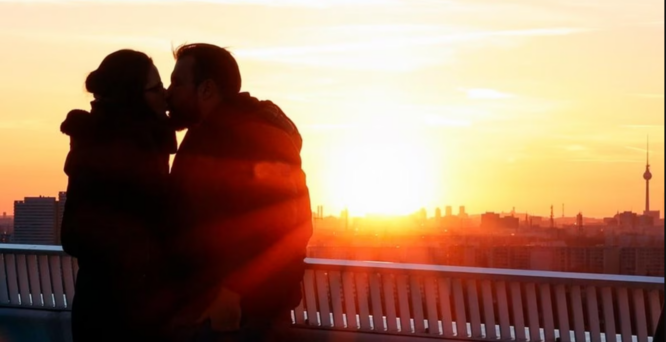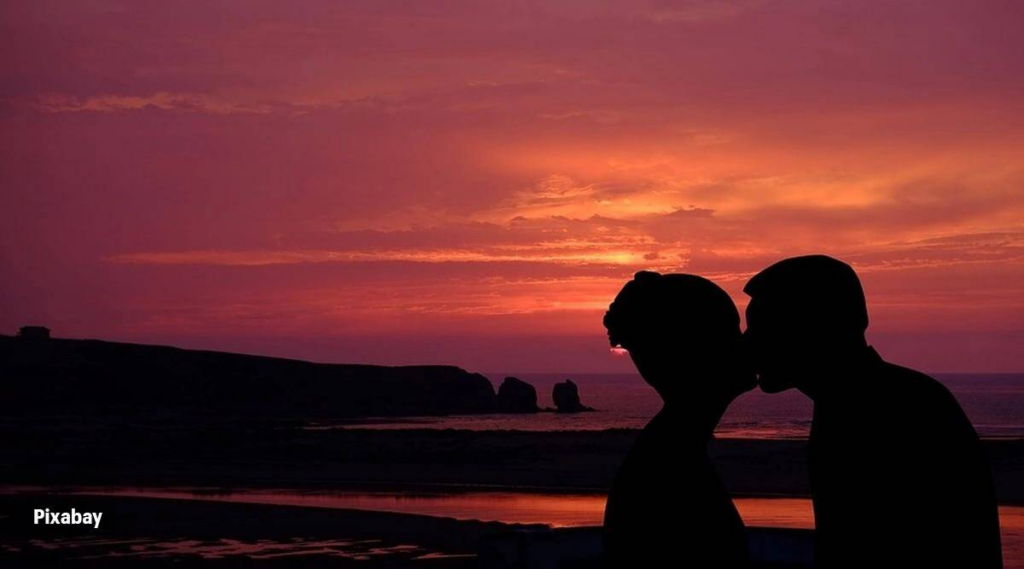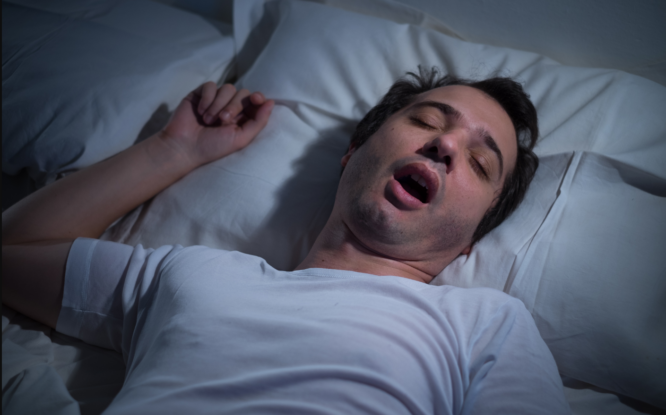
Why do we kiss? – The science of passion 2023
Sanjh
- 0
Storytellers believe kisses transform. Kisses may turn frogs into princes and wake sleeping beauties. Kisses symbolize a character’s transition from kid to adult, ready for romance and reproduction. Frog to man.
Kissing is more intimate than words in relationships. Many revere kisses. Films teach us prostitutes don’t kiss on the lips—they save it for their real love.
Kissing can be non-romantic. A kiss on a child’s forehead is loving, whereas a kiss on the cheek is a greeting. Kissing someone’s feet or the ground in front of them expresses subservience and reverence for gods and rulers.

Zooming in on the mouth makes kissing disgusting. A 10-second kiss exchanges 80 million oral microorganisms. Eew! Kissing also spreads illnesses.
Why do we?
First kiss
“The very first evidence we have of lip kissing is around 2,500 BCE,” said Troel Arboll, an Assyriologist at University of Copenhagen, Denmark.
Mesopotamian mythology mentions it. Two gods kiss and copulate. Arboll told DW it was sexual.
On Thursday, Science released Arboll and Sophie Rasmussen’s new take on kissing’s ancient past. They propose that numerous ancient societies evolved passionate kissing over millennia. From 1,500 BCE, India and Egypt also depicted sexual kissing.
As writing evolved from an administrative tool to a storytelling tool, sex and kissing increased, according to Arboll. The Epic of Gilgamesh, a 2,000-year-old story, depicted kissing. Intimacy changes Enkidu from a beast to a man, as in modern interpretations.

Arboll discovers kissing in common Mesopotamian life and early erotic writing.
For example, unmarried couples should not kiss. Societies were regulating passionate kisses. Arboll stated it was controlled since it was an everyday practice.
Kissing: natural?
Arboll suggests that passionate kissing evolved in complex civilizations as a mating practice.
Kissing seems to vary by culture. According to historical books and modern research, 46% of human societies don’t kiss romantically.
Anthropologists believe non-romantic kissing is natural. Cats, dogs, elephants, and apes lick and nuzzle. Bonobos, like humans, kiss on the lips for comfort, socializing, and making up after a conflict.
Experts think love kissing developed from animal nuzzling. We develop similarly. Kisses and hugs from our parents lead to adult love.
Kissing disease
New data reveals kissing may have unintentionally spread illness throughout history. Human remains have included saliva-transmissible pathogens including HSV-1 and Epstein-Barr virus (kissing illness, glandular fever).
Arboll suggests that HSV-1 lineages altered in the Bronze Age due to more amorous kissing. China banned kissing and France avoided the kiss-greet due to COVID-19 broadcast.
Banojyotsna Lahiri on her “long distance relationship” with activist Umar Khalid: “We have court dates, pun intended”
Kissing spreads illness, says Leeds University oral health scientist Thuy Do.
“We have 800-900 different microbes in our mouths,” Do told DW. Kissing exchanges saliva and germs. Hepatitis and HSV-1 can spread.
Sexual pleasure
It’s not disgusting. Do highlighted that kissing may help maintain healthy oral bacteria variety by sharing germs with our partners.
“Streptococcus salivarius can reduce inflammation. “People with lots of health-associated species have healthier mouths,” stated Do.
She believes kissing improves more than oral health.
The mouth connects to the gut microbiota and skin. “Kissing may improve your body’s microbiome, even affecting your brain and mood,” added Do.
Scientists think kissing tests potential partners. Kissing can reveal a partner’s genetic computability or overall health through saliva biological clues.
Sex follows saliva matching. Many people have an old body-wide reaction to sex triggered by tongue and lip tactile stimuli. Oxytocin, dopamine, and serotonin release from the brain’s pleasure and reward regions. Your skin heats, pulse rate rises, and pupils dilate doe-eyed and watery. Close the bedroom.


